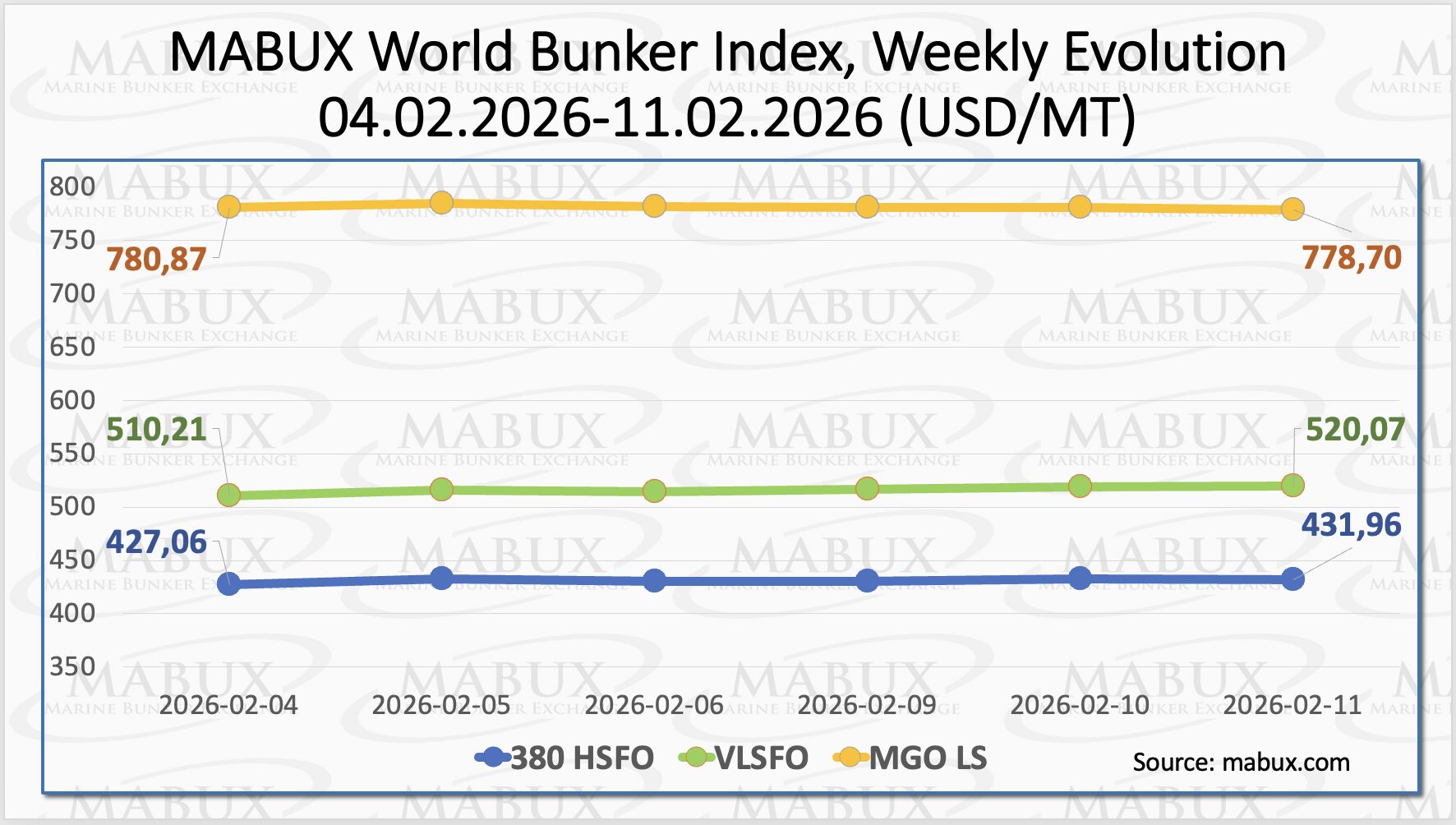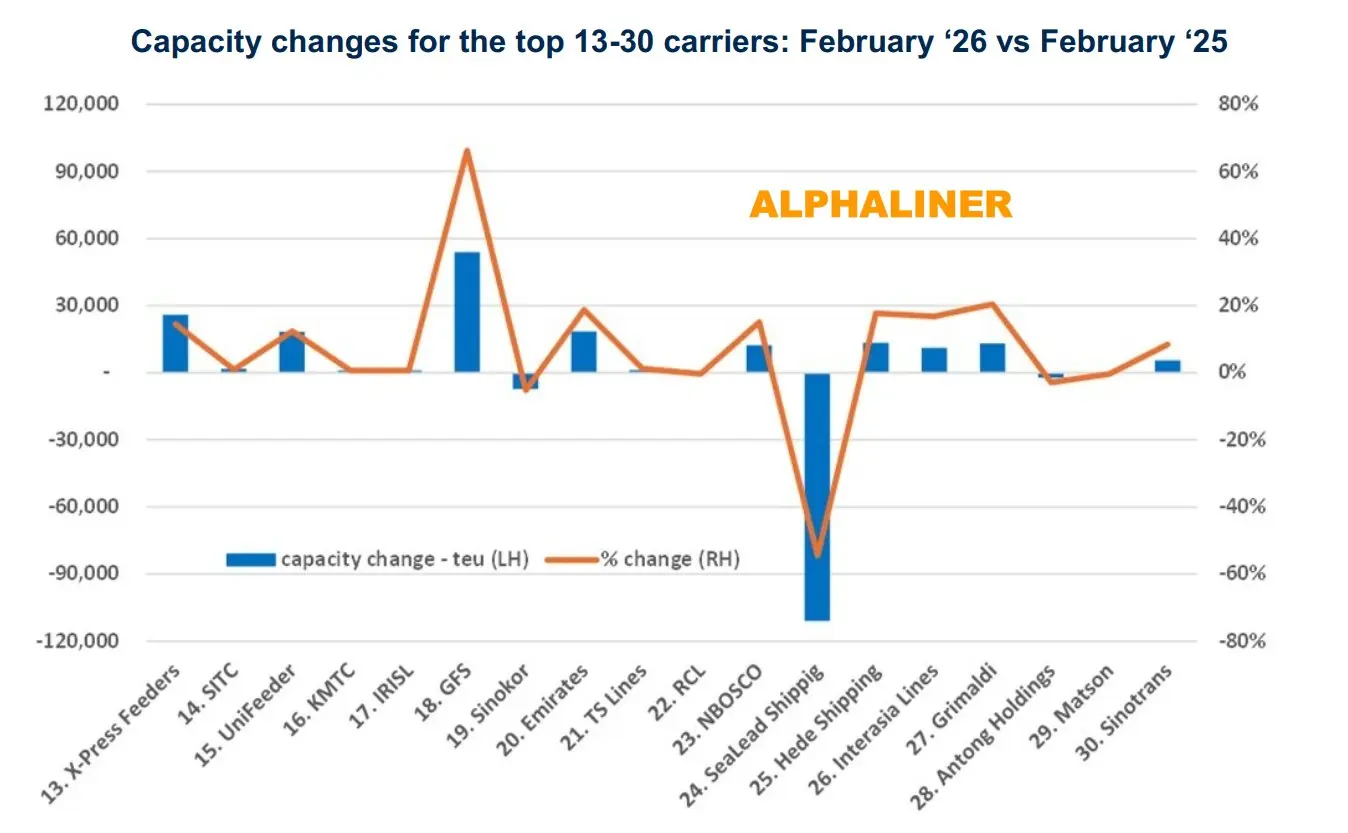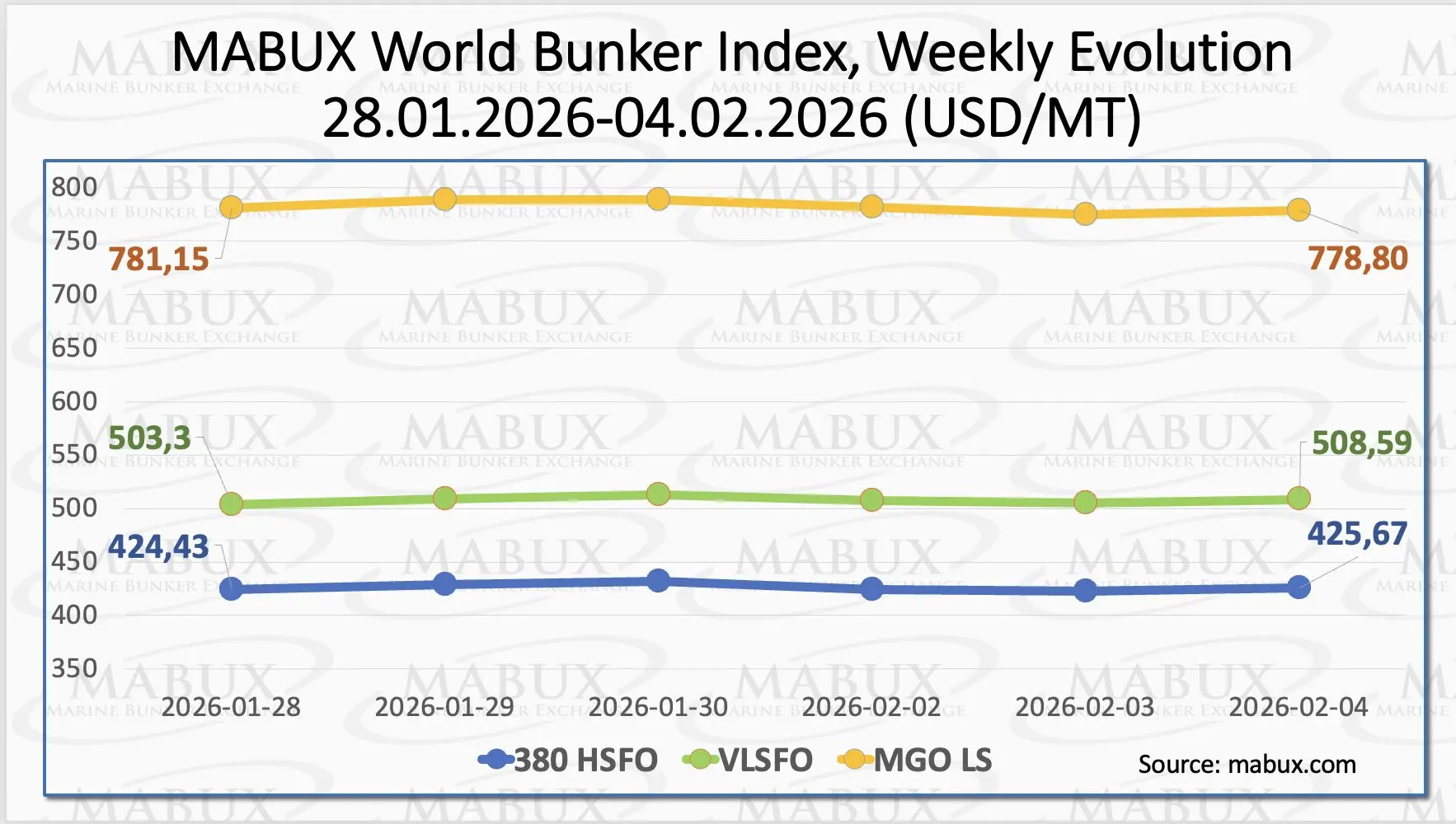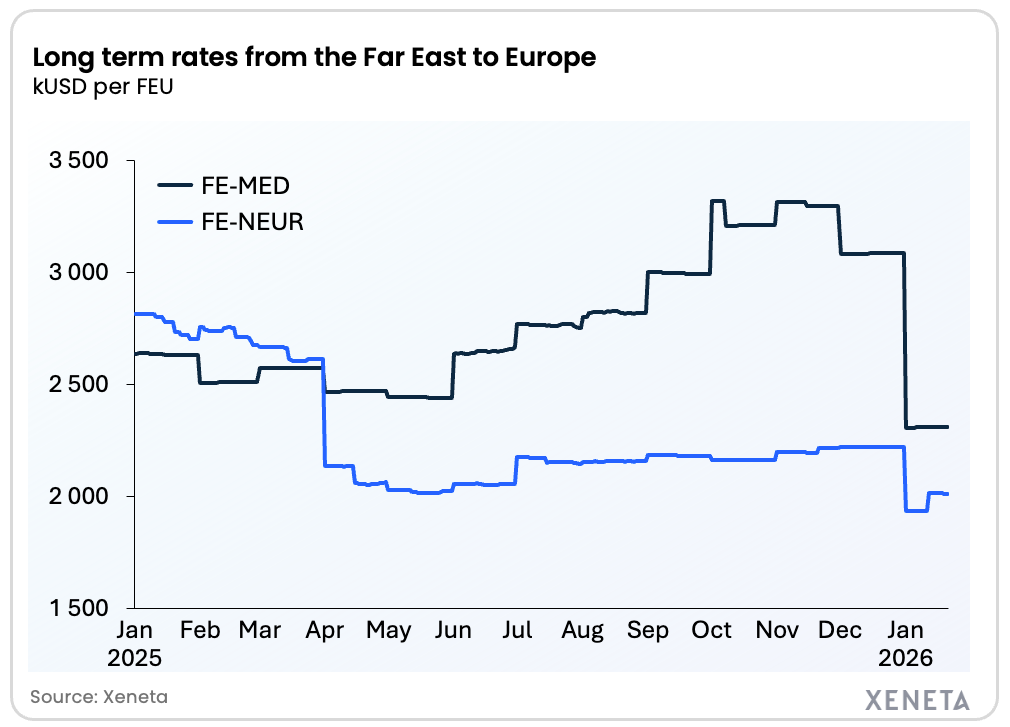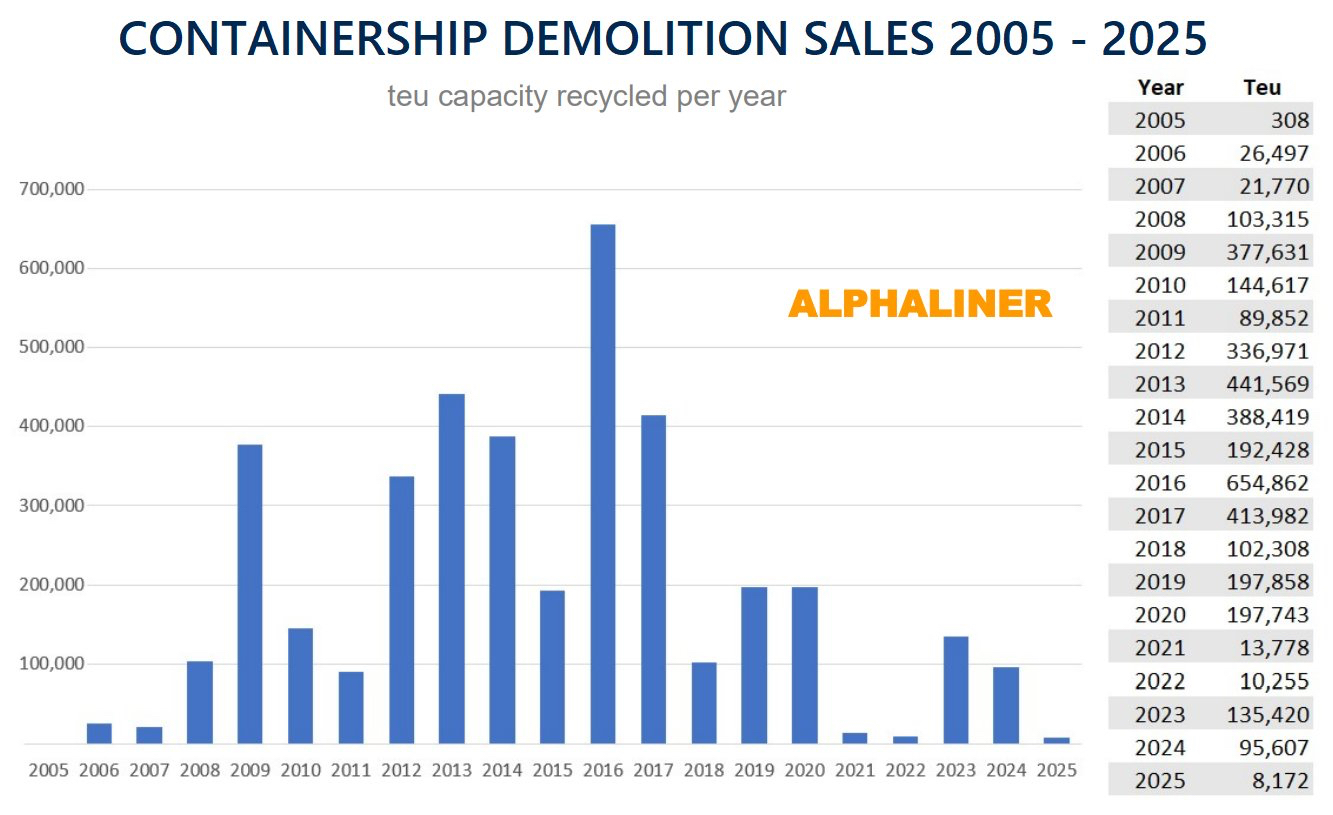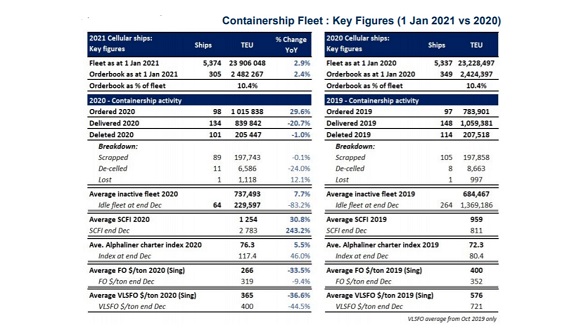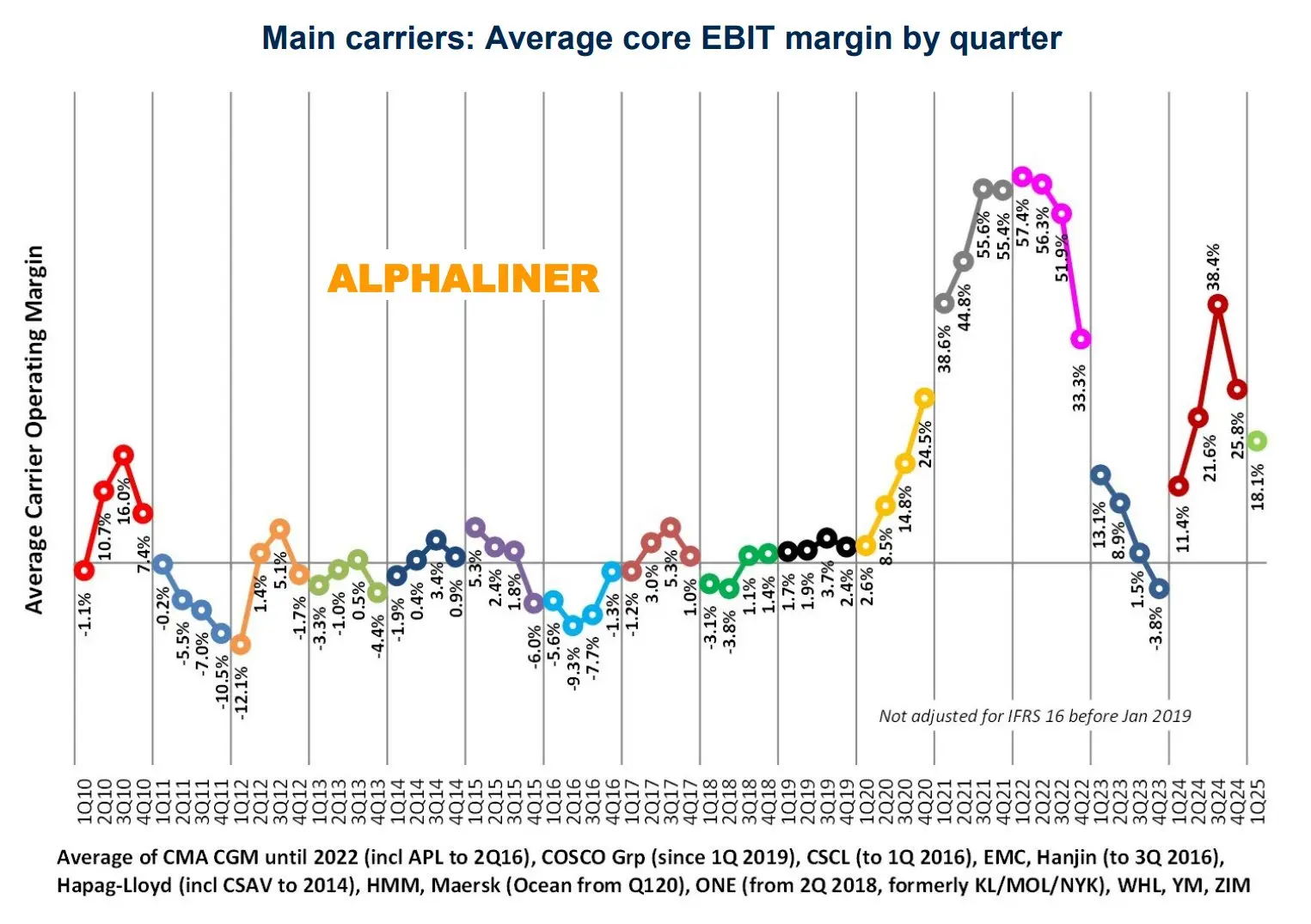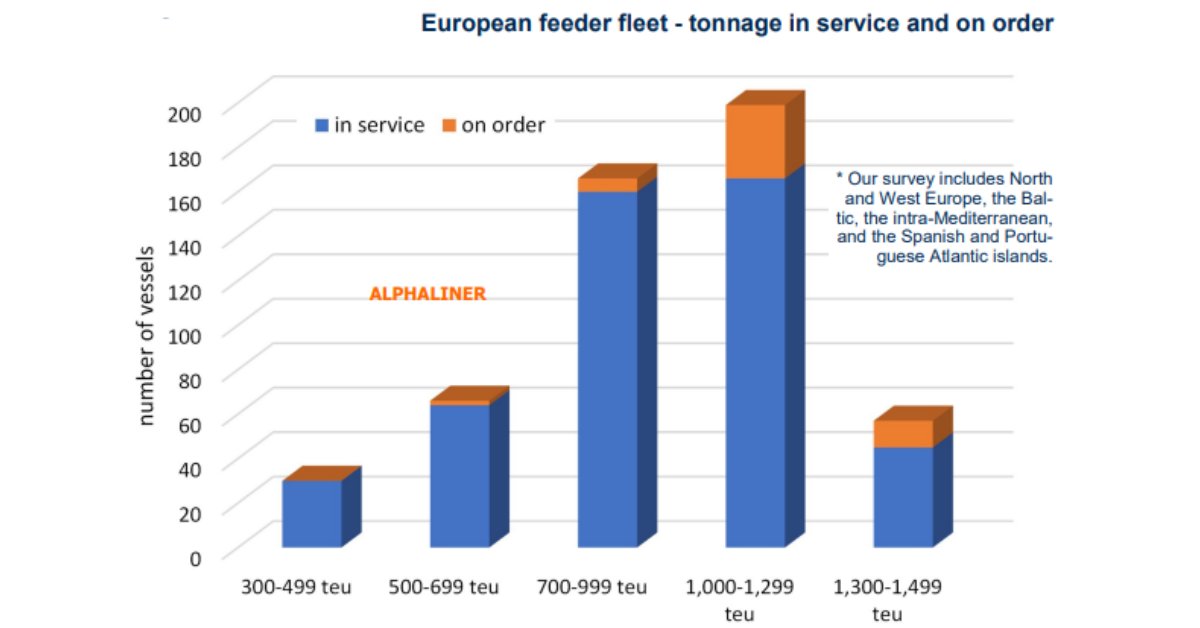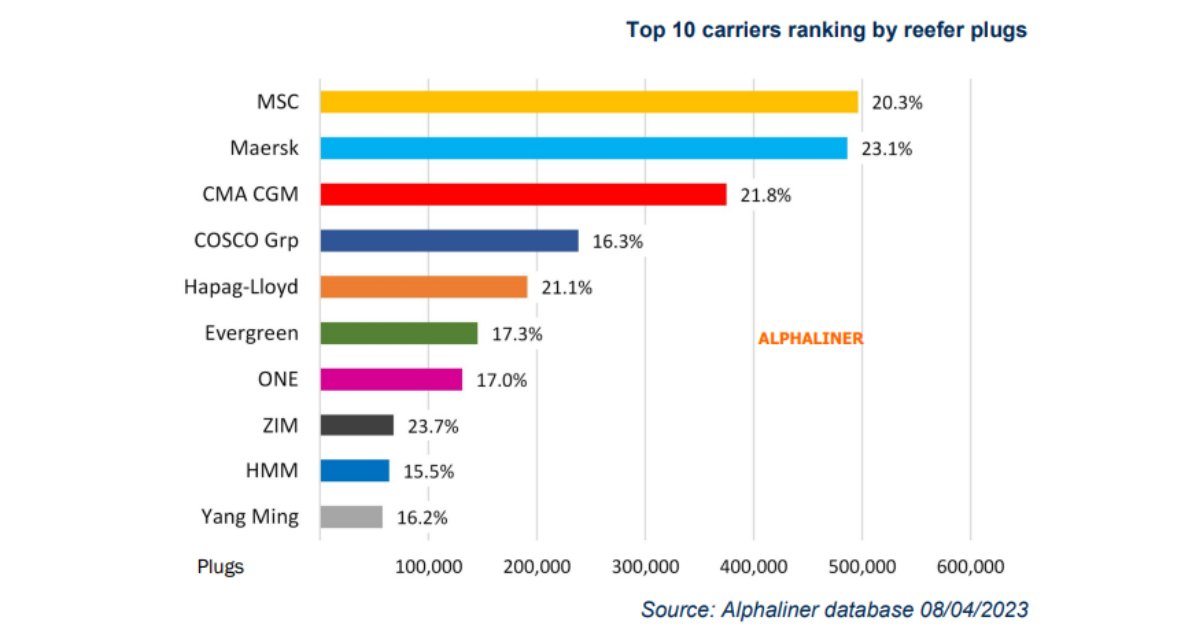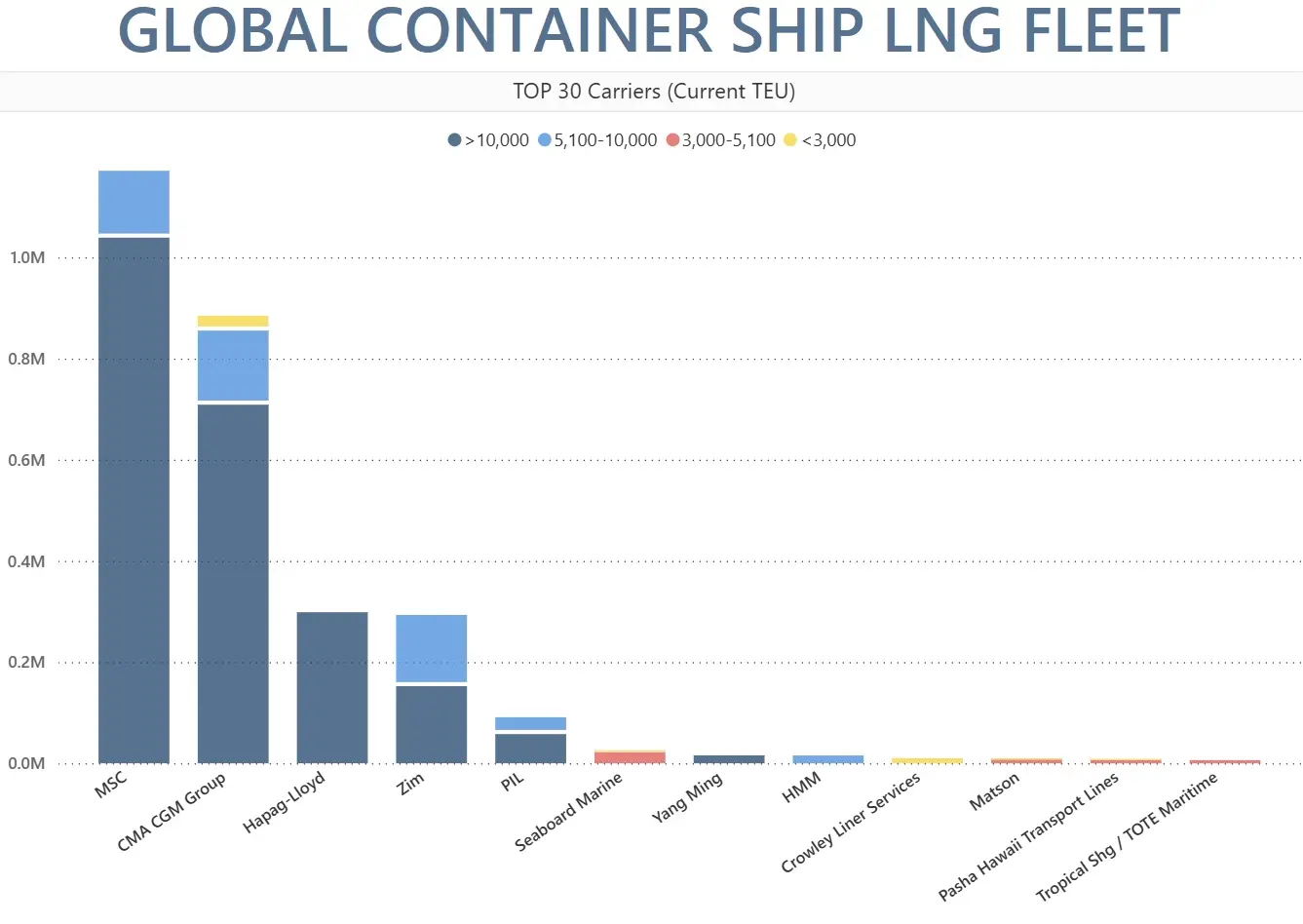
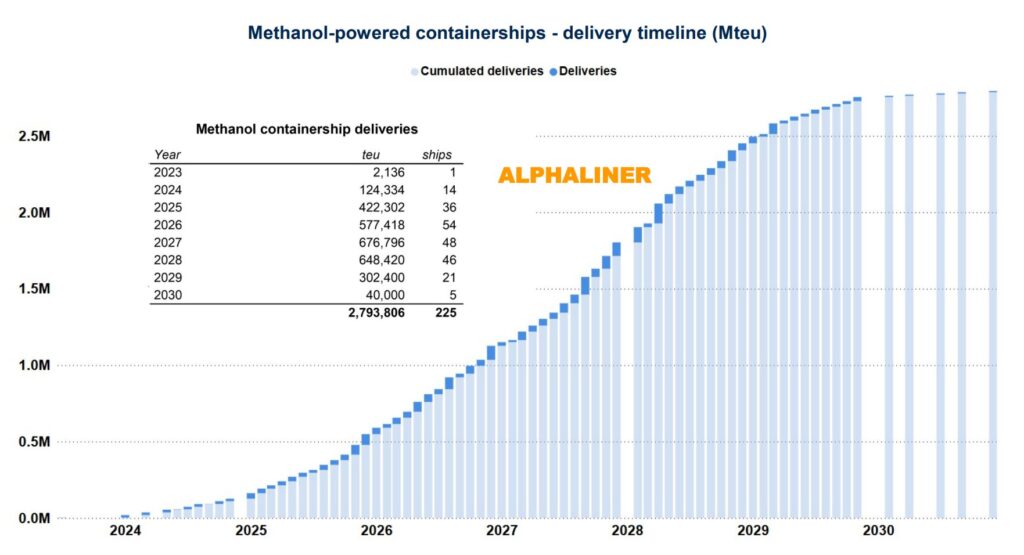
COSCO SHIPPING Group has become the next major ocean carrier to deploy large methanol mainline ships, following on the heels of ‘green fuel’ pioneer Maersk, the Korean carrier HMM, and the French Line CMA CGM.
Some 18 months after Maersk took delivery of its first methanol-enabled mainline Container Ship, the ANE MAERSK, and just a few months after the inauguration of the methanol-enabled HMM GREEN and the CMA CGM IRON, China’s COSCO Group has joined the ‘green fuel’ game with its first ever methanol mainliner: the COSCO SHIPPING YANGPU.
Four of the world’s top-ten ocean carriers thus have methanol ships in service. In addition to these, Maersk, X-Press Feeders, and North Sea Container Line also deploy smaller ‘feeder’ vessels with methanol power.
Maersk actually had a small methanol-enabled vessel in service half a year before deliveries of the ANE MAERSK and her sisters started.
In July 2023, the Danish liner company took the LAURA MAERSK, a one-off newbuilding from HD Hyundai Mipo Dockyard.
While technically a ‘maxi-Bangkokmax’, this 2,136 teu ship with ice class was designed specifically for the short-sea and feeder trades in Maersk’s home waters of Northern Europe.
Methanol is widely regarded as a suitable means of decarbonization, but the new fuel is not without its challenges.
Firstly, methanol is ‘clean’, but it is not carbon-free per se. Running vessels on this type of fuel is actually counterproductive from a CO₂ perspective and it only makes sense when the methanol is sourced sustainably.
While such ‘green methanol’ is available on the market, the sheer quantities required by a thirsty fleet of mainline vessels still overstrains the ‘green fuel’ supply chain which is still in its infancy.
Methanol also has a lower energy density compared to conventional fuel oils. As a result, ships require larger fuel tanks to maintain range, which reduces available cargo space.
Source: Alphaliner

